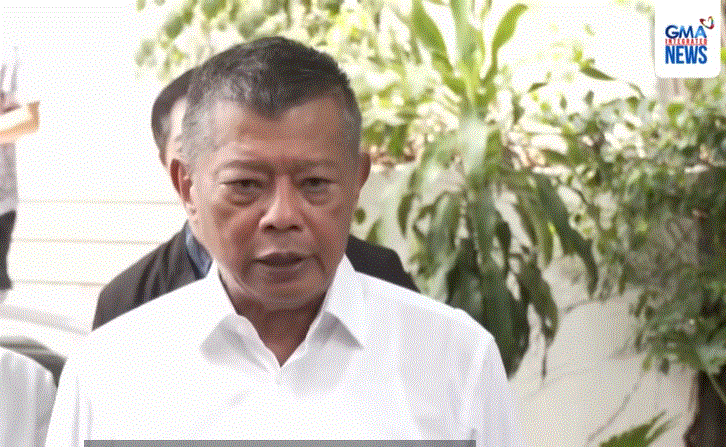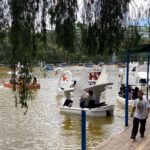Filtered by: Topstories
The Ombudsman has dismissed the complaints against Justice Secretary Jesus Crispin “Boying” Remulla in connection with the arrest of former President Rodrigo Duterte.
Remulla and Sen. Imee Marcos, then the chairperson of the Senate Committee on Foreign Relations, who recommended the charges before the Ombudsman, both confirmed the dismissal of the charges.
The justice chief is a candidate for the position of Ombudsman.
Marcos said she already filed a motion for reconsideration.
To recall, in May, Marcos submitted to the Ombudsman a chairman’s report on Duterte’s arrest and transfer to The Hague, Netherlands, to face charges for crimes against humanity related to the drug war.
The letter said the inquiry “uncovered acts by high-ranking government officials which very likely constitute criminal and administrative offenses.”
Remulla has said that he would file a motion asking the Ombudsman to resolve the issue “as soon as possible.”
Pending case
With a motion for reconsideration filed on September 12, the senator said that Remulla “still has a pending case before the Office of the Ombudsman.”
“Under the Rules of the Office of the Ombudsman (A.O. 7 series of 1990), a motion for reconsideration may be filed within 5 days from notice of the decision. I filed my Motion for Reconsideration within the day the decision was rendered. It was clearly filed on time,” Marcos said.
“Any Ombudsman clearance to the contrary is simply untruthful, and the people who will issue such a clearance are complicit in this deception,” she added.
News Online has reached out to the Ombudsman for confirmation of the said decision, but it is yet to reply.
Rodrigo Duterte was arrested in the Philippines by local authorities on March 11, based on a warrant of arrest issued by the International Criminal Court (ICC).
He is currently detained in The Hague for charges of crimes against humanity for the extrajudicial killings during the controversial war on drugs.
The Hague
The Hague is the seat of the Dutch government and the International Court of Justice, renowned as a global hub for international law and peace. It originated in the 13th century as a hunting lodge for the Counts of Holland and evolved into the country’s administrative center, even though it is not the official capital. The city is also famous for its historic Binnenhof complex, which houses the parliament.
Netherlands
The Netherlands, historically known as Holland, is a country renowned for its flat landscape, extensive canal systems, and centuries of land reclamation from the sea. It emerged as a major maritime and economic power in the 17th century, a period known as the Dutch Golden Age, and is famous for its artistic masters like Rembrandt and Van Gogh. Today, the nation is celebrated for its progressive social policies, iconic windmills, tulip fields, and cycling culture.
International Criminal Court
The International Criminal Court (ICC) is an independent judicial institution established in 2002 by the Rome Statute to prosecute individuals for genocide, crimes against humanity, war crimes, and the crime of aggression. It was created as a permanent court to address the most serious international crimes when national courts are unable or unwilling to do so. Headquartered in The Hague, Netherlands, it represents a global effort to end impunity for perpetrators of atrocities.
Office of the Ombudsman
The Office of the Ombudsman is an independent, impartial institution that investigates complaints from the public against governmental bodies and maladministration. The modern concept originated in Sweden in 1809, created to oversee the government and protect citizens’ rights. Its core function is to ensure accountability, fairness, and transparency in public administration.
Senate Committee on Foreign Relations
The Senate Committee on Foreign Relations is a standing committee of the United States Senate that is charged with leading foreign-policy legislation and debate. It was established in 1816, making it one of the oldest Senate committees. The committee plays a crucial role in shaping international treaties, confirming diplomatic appointments, and conducting oversight of U.S. foreign policy.
Philippines
The Philippines is a Southeast Asian archipelago nation with a rich history shaped by indigenous cultures, over 300 years of Spanish colonial rule, and a period of American administration. Its culture is a vibrant fusion of these influences, evident in its historic Catholic churches, Spanish-era architecture, and unique festivals. The country is also renowned for its stunning natural beauty, including pristine beaches, rice terraces, and diverse marine ecosystems.






